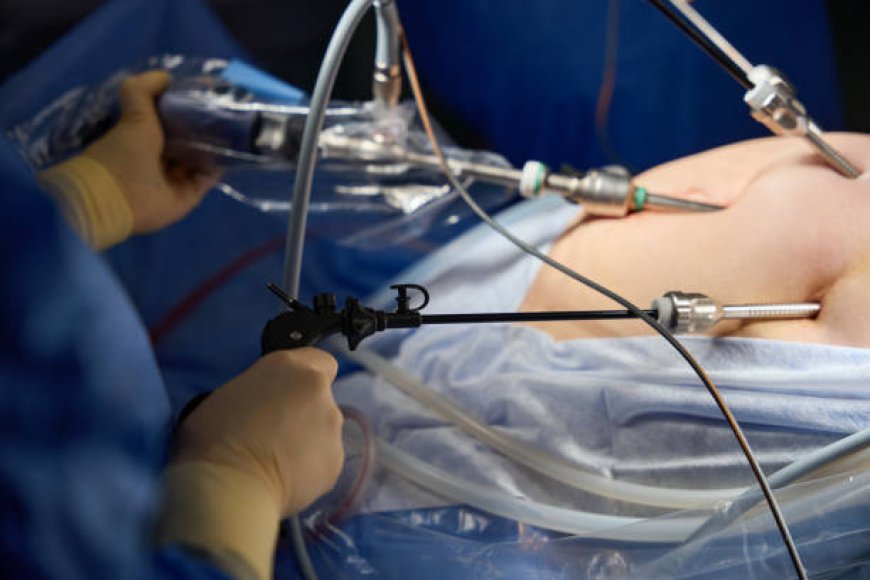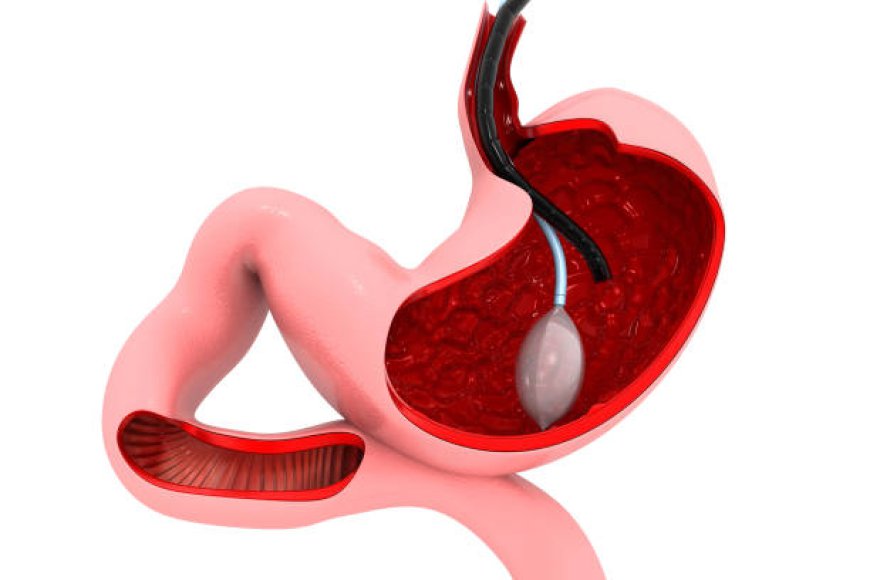Who Can Benefit from Endoscopic Intragastric Procedures?
Endoscopic Intragastric procedures provide an effective solution for individuals struggling with obesity and seeking a minimally invasive option. Ideal candidates typically include those with a BMI over 30, individuals with obesity-related health conditions, and those ready to commit to lifestyle changes. Psychological readiness and a thorough evaluation of age and health conditions also play a significant role in determining eligibility.

Endoscopic Intragastric procedures have become increasingly popular as a viable option for individuals seeking weight loss solutions. These minimally invasive techniques are designed to help patients achieve significant weight loss and improve their overall health. However, not everyone is a suitable candidate for this procedure. In this blog, we will explore who can benefit from Endoscopic Intragastric procedures, covering various aspects to help you determine if it’s the right choice for you.
Understanding Endoscopic Intragastric Procedures
What is Endoscopic Intragastric?
Endoscopic Intragastric procedures involve the placement of an intragastric device within the stomach through the esophagus using an endoscope. This method aims to reduce the stomach's capacity, thus helping patients feel fuller with smaller portions of food. Common techniques include intragastric balloons and other gastric devices.

How Does It Work?
The procedure is typically performed under sedation and does not require large incisions. The endoscopic method minimizes recovery time and discomfort, allowing patients to return to their daily activities more quickly than traditional surgical options.
Who is an Ideal Candidate?
Individuals with a Body Mass Index (BMI) Over 30
One of the primary indicators for candidates considering Endoscopic Intragastric procedures is their Body Mass Index (BMI). Individuals with a BMI of 30 or greater, who have not achieved significant weight loss through traditional means like diet and exercise, may benefit from this procedure.
Those with Obesity-Related Health Conditions
Individuals suffering from obesity-related health issues, such as type 2 diabetes, hypertension, or sleep apnea, are often recommended for Endoscopic Intragastric procedures. The weight loss achieved through this procedure can lead to significant improvements in these conditions.
Patients Seeking Non-Surgical Options
For many, the thought of undergoing invasive weight-loss surgery can be daunting. Endoscopic Intragastric procedures offer a less invasive alternative. Patients who prefer non-surgical methods yet need assistance with weight management are excellent candidates for these procedures.
Individuals Committed to Lifestyle Changes
A successful outcome with Endoscopic Intragastric procedures requires a commitment to adopting healthier eating habits and lifestyle changes. Candidates must be willing to engage in post-procedure follow-ups and actively participate in weight loss programs to maximize their success.
Psychological Readiness
Addressing Emotional Eating
Candidates for Endoscopic Intragastric should also be prepared to address any underlying psychological factors contributing to their weight issues. Those who engage in emotional eating or have a complicated relationship with food may need additional support, such as counseling, before and after the procedure.
Setting Realistic Expectations
Understanding the limitations of Endoscopic Intragastric procedures is crucial. While these interventions can aid in weight loss, they are not a cure-all. Candidates must have realistic expectations regarding the amount of weight they can lose and the lifestyle adjustments required.
Age Considerations
Age Limitations
While there is no strict age limit for undergoing Endoscopic Intragastric procedures, most clinics prefer candidates to be between 18 and 65 years old. This age range ensures that patients are mature enough to commit to the necessary lifestyle changes while still being young enough to benefit from the procedure.
Pediatric Candidates
In some cases, adolescents with severe obesity may be considered for Endoscopic Intragastric procedures. However, this is typically approached with caution and involves a thorough evaluation by a healthcare professional to ensure it is in the best interest of the patient.
Pre-existing Conditions
Evaluating Health Conditions
Candidates should be thoroughly evaluated for pre-existing health conditions. Certain gastrointestinal disorders or conditions that could complicate the procedure may disqualify an individual from being a suitable candidate for Endoscopic Intragastric.
Importance of Medical History
A detailed medical history will help healthcare professionals determine the appropriateness of Endoscopic Intragastric procedures. Those with prior surgeries or medical complications may need to explore alternative options.
Conclusion
Endoscopic Intragastric procedures provide an effective solution for individuals struggling with obesity and seeking a minimally invasive option. Ideal candidates typically include those with a BMI over 30, individuals with obesity-related health conditions, and those ready to commit to lifestyle changes. Psychological readiness and a thorough evaluation of age and health conditions also play a significant role in determining eligibility.
Ultimately, discussing your options with a healthcare professional can provide personalized guidance. By understanding who can benefit from Endoscopic Intragastric procedures, you can make an informed decision about your weight loss journey and embark on a path toward better health and well-being.
FAQs About Endoscopic Intragastric Procedures
How long does the procedure take?
The actual procedure usually takes about 30 to 60 minutes, with patients typically able to return home the same day.
What is the recovery time?
Recovery time is minimal. Most patients can return to their daily activities within a few days but should avoid strenuous activities for at least a week.
How much weight can I expect to lose?
Weight loss varies by individual but can be significant when combined with lifestyle changes. Many patients report losing 30-50% of their excess weight within six months.
Are there risks associated with the procedure?
As with any medical procedure, there are risks involved, including nausea, vomiting, and complications related to the endoscope. It’s essential to discuss these risks with a healthcare provider.

 maria3211
maria3211